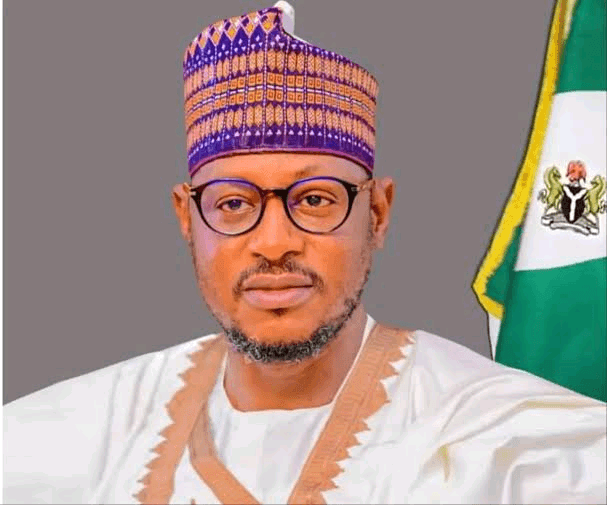From Muawuya Bala Idris, Katsina
Governor of Katsina State, Malam Dikko Umar Radda, has been recognized as a leading figure in promoting women’s inclusivity in democratic governance across Africa.
This commendation was made by Dr. Surajo Yakubu Batagarawa, Head of the Department of Public and International Law at NILE University, Nigeria, during his presentation titled “Civil Society Organization and Democratic Governance in Africa.” The paper was delivered to participants of the Executive Intelligence Management Course (Course 18) at the National Institute for Security Studies (NISS) in Abuja.
Dr. Yakubu highlighted that Governor Radda’s administration made history by being the only state government to implement a 35 percent affirmative action policy for women in governance, reflected in the number of women appointed to lead various ministries and agencies in Katsina State.
To illustrate his point, he cited the appointment of three women as commissioners, including the Commissioner for the pivotal Ministry of Justice.
“The Radda administration created space for women by appointing them to key government positions, acknowledging their valuable contributions to politics,” he stated.
He further noted that Governor Radda appointed many women as special advisors, special assistants, heads of agencies and departments, as well as media aides.
Dr. Yakubu also revealed that to ensure women’s participation at the grassroots level, the Radda administration appointed 361 women across wards to support the successful implementation of the Community Development Program.
“He ensured that women’s inclusivity in democratic governance extended down to the local government level, with at least one woman occupying the position of supervisory councilor and another serving as advisory councilor,” he emphasized.
Dr. Yakubu urged other elected political leaders in Nigeria and across Africa to emulate Governor Radda by appointing more women to key positions within their administrations.
He stressed that since women constitute the majority of voters, their contributions to politics should be acknowledged and reciprocated.
On the role of civil society organizations, Dr. Yakubu called on African countries not to marginalize these groups, emphasizing that they are not mere guests in governance but co-architects of the democratic structure.
“As we chart Africa’s path toward peace, justice, and inclusive governance, civil society organizations must be protected and fully integrated into national strategies,” he said.
However, he cautioned that international non-governmental organizations (NGOs) should be closely monitored to ensure they operate within legal frameworks and do not serve as fronts for activities that could threaten the stability of African nations.
